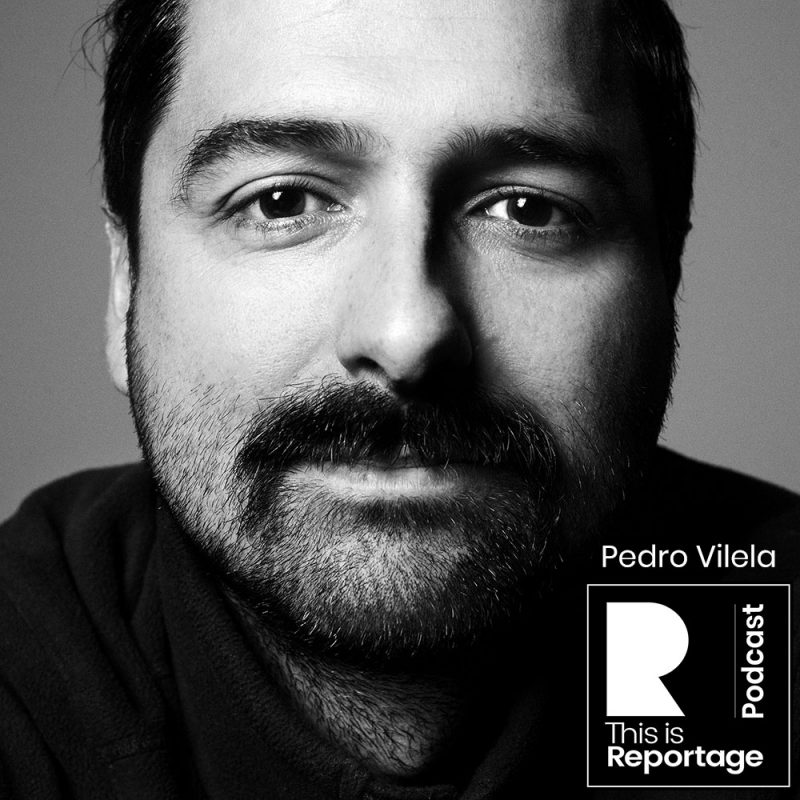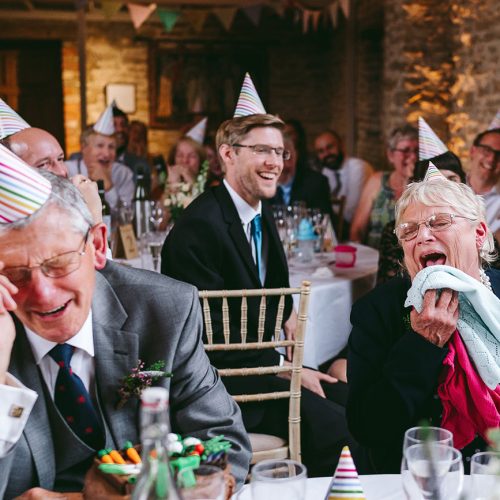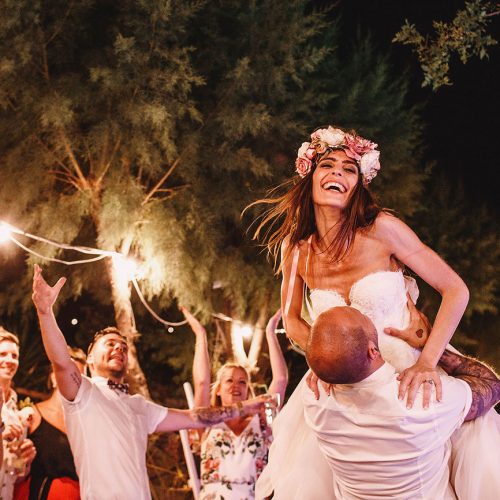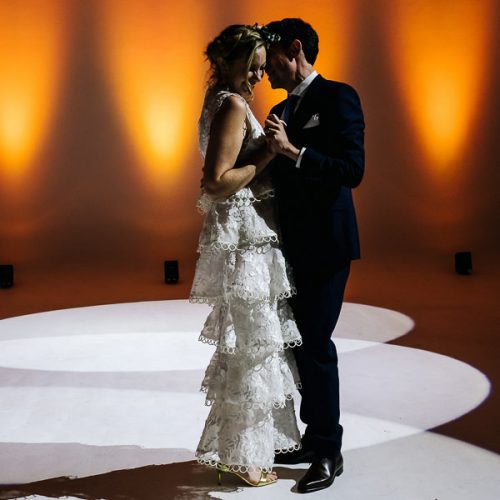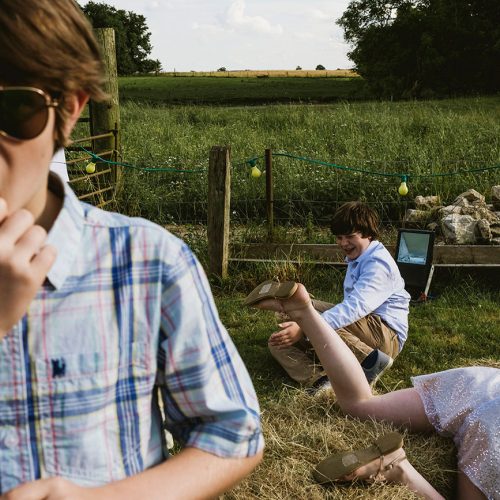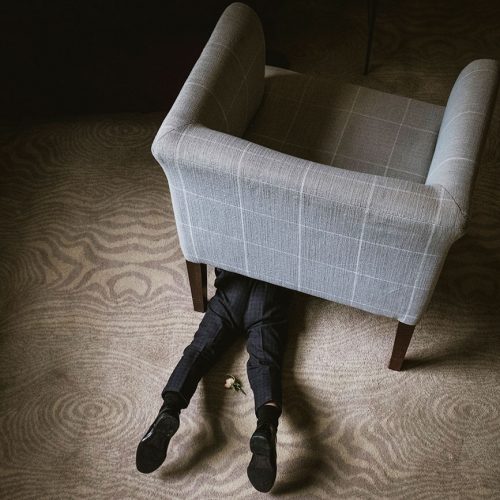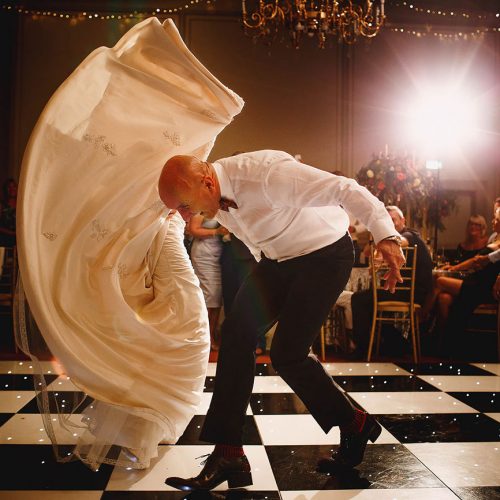Podcast Episode 7: This is Pedro Vilela
So excited to have the absolutely fantastic Pedro Vilela on episode 7 of the This is Reportage Podcast! Based in Lisbon, Pedro is one of my personal all-time favourite photographers (definitely one of the best documentary wedding photographers in Portugal), and has been a constant inspiration for my own career. Joint third in our Top 30 Photographers of 2018, and winner of 16 TiR Awards in total, Pedro’s work is constantly creative – and he’s a super lovely guy, too. Tune in to this episode as Pedro talks about:
keeping physically fit and fresh, working with his wife, growing up in Portugal, his background in photojournalism, his thoughts on creativity, composition and light, creating portraits that show his clients’ personality, the importance of meeting his couples beforehand, films that make him cry, life with twin girls, advice on reportage photography in general, how he shot a couple/family from engagement and wedding, all the way through to maternity, family and birth, staying true to ourselves and not following trends, speaking at Fearless Conference recently, good times with friends, turning points in his life and career, the essential skills a wedding photographer should have, his thoughts on the future, on TiR, and much more…
As always, there are various ways you can listen: Spotify, iTunes, Google Podcasts, and here in this post (where there is also a full transcript if you prefer to read). All our other photography business podcast episodes (as well as lots of other subjects, of course) can be found on our site, too.
If you enjoyed this episode, you can subscribe to the show over on iTunes – that way, you’ll be notified when each new, weekly episode is released. If you’d like to give us a review and/or rating whilst you’re over there, we’d massively appreciate that too!
Alan Law: Hey, Pedro. How are you doing?
Pedro Vilela: Hello, Alan. How are you?
Alan Law: I am good. Thank you. Really good. How’s things with you. Thanks for joining us all the way from Portugal.
Pedro Vilela: It’s a pleasure and honor to be here talking to you. It’s amazing.
Alan Law: Oh, it’s an honor to have you, honestly. It’s brilliant. Thank you.
Pedro Vilela: Thank you so much. Thank you.
Alan Law: How’s your wedding season been? Been a good one?
Pedro Vilela: Yeah, it was really good. I feel fresh. I still have one more wedding to go, but if I need to start a season now, I think I start it right away, because I feel very fresh.
Alan Law: Wow. Really.
Pedro Vilela: Yeah, yeah.
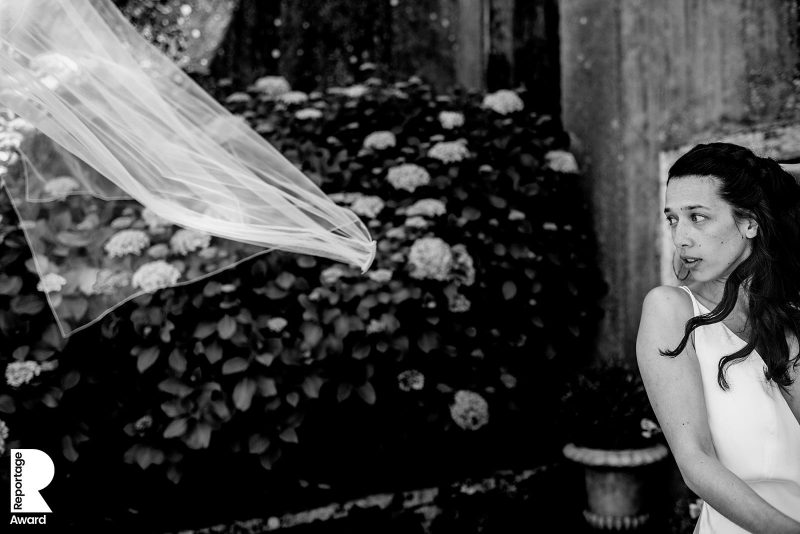
Alan Law: That’s brilliant to come to the end of a season and still feel really fresh. How do you feel like that? Do you exercise every day or something?
Pedro Vilela: Every day, not so much as I want to, but I play Squash, I do yoga, I have a bike. I ride a bike sometimes. I don’t know. I do small things throughout the week. I have a really amazing help of my wife and she works in the back office.
Alan Law: Oh, cool. So does she do like your editing and things, or do you still do that?
Pedro Vilela: Kind of. I still do some editing. But she works more in client management, emails and contracts. Schedule things with wedding planners and meetings with couples and you know, the back office things. Yeah.
Alan Law: That’s handy to have. That’s cool.
Pedro Vilela: Yes. Yes. And we work together almost three years and she’s a really great help and allows me to think more about pictures and photography and how can I be a better photographer.
Alan Law: Oh, that’s great. And you never argue? Never have any differences?
Pedro Vilela: We have our times. Nothing special. You also have-
Alan Law: Oh yes. Yeah, I understand.
Pedro Vilela: I think we have a great thing. We have a really nice balance between work life and personal life. And when we started working together, we thought a lot about this and the first thing that we wanted is to be together and see our daughters every day and play with them and have more quality time together. And that, for us, was the most important thing.
Alan Law: That’s so cool. That’s so magic that you’ve got that. That really is so important. Yeah, so you live in Lisbon, Portugal, which is a beautiful city. Did you grow up there? Were you always interested in photography? Tell us about the young Pedro Vilela?
Pedro Vilela: So many things. I don’t know. Yeah, okay. I was born in Lisbon. I didn’t live in Lisbon all my life. I lived in a village very close to Lisbon, I don’t know, maybe 30 minutes, 40 minutes from Lisbon.
Alan Law: Okay.
Pedro Vilela: Called Sintra. And I lived there until 26 years old, then I met Helena and we started living together. I’m almost 38, so I mean-
Alan Law: No. You’re not that old.
Pedro Vilela: Yes, I am. I am.
Alan Law: You look so much younger Pedro. I’ve had the pleasure of meeting you a few times and I reckon you seem about 25 or so.
Pedro Vilela: Oh my, no. We met five years ago. Six years ago.
Alan Law: Yeah, it was, wasn’t it. At the-
Pedro Vilela: I remember it like the other day.
Alan Law: It’s mad isn’t it how that time has gone by?
Pedro Vilela: It was on Fer Juaristi.
Alan Law: Yeah, yeah. In London. Yeah. And so were you always into photography from a young age? Or is it something you’ve-
Pedro Vilela: So my big passion was movies, cinema. I think I always had a dream to work on that industry. So I have a degree in communication.
Alan Law: Oh, cool.
Pedro Vilela: Yeah. And when I finished that degree I started to do photojournalist course. Learning the skills of being a photojournalist. And I started from there.
Alan Law: Cool.
Pedro Vilela: I did an intern in a national newspaper. I never stopped since then. I don’t know, it was like in 2005, maybe, when I start.
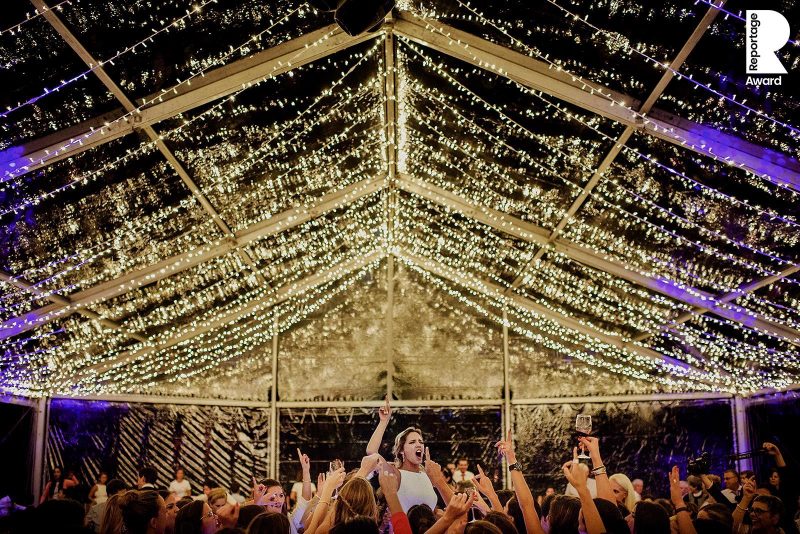
Alan Law: How did you get that very first wedding then?
Pedro Vilela: Because at the same time as I work as a photojournalist, I met some wedding photographers at the time, so I worked with them as a second shooter. It was another work or another job to work in photography. And I kind of liked to work on weddings. And I started to imagine myself working in weddings, because in 2006/2007 wedding photography in Portugal wasn’t like it is now. As you can imagine?
Alan Law: Right. Yeah.
Pedro Vilela: All over the world. So, I think I had some luck at the beginning because I started to show some pictures with the photojournalists style in my blog. And I started to have some inquires.
Alan Law: Did you shoot straight away in a photojournalistic style then?
Pedro Vilela: I think I started very slowly, because at the beginning I didn’t have any weddings directly to myself.
Alan Law: Sure.
Pedro Vilela: When I was working with other photographers, I did my work, but I still was searching for something. And I think it started from there. And then I started to have some inquires from couples that saw my blog at the time and saw that I did weddings and also other types of work. And I think my style developed from there.
Alan Law: And I personally, I love your style. You’re one of my favorite ever photographers.
Pedro Vilela: Oh, thank you so much.
Alan Law: It’s true though, Pedro. You’re always so creative. How do you stay so creative even after shooting so many weddings now? How do you do it?
Pedro Vilela: To be honest I don’t feel I’m that creative. I don’t feel I’m the most creative photographer. I think I just try to feel things around me and try to search for pictures that tell something to that moment or to that person or to me. And I don’t know if it’s creativity, but I try always to find a nice composition or a nice light or a nice feeling of the moment that I’m living. I don’t feel this is creativity. I just feel that you are in the moment searching for something. But I try to see a lot of… To work the composition and work the light and I think those are my primary concerns. You know?
Alan Law: Yeah, definitely, but you nail it. You’re so modest when you say you don’t think you’re that creative, but you really, really are.
Pedro Vilela: Oh it’s true. Because, for example, portraits. I don’t feel that I do or follow the searching for the most creative portraits. I just try to understand the people that I’m taking pictures and give them the picture that shows their personality. I think my work is more to listen and to feeling, then to follow some kind of creative picture or shot. I don’t know.
Alan Law: Well I think that’s fantastic that you say that, because I think portraits in general can be a lot more about the photographer rather than the couple. So that’s great you’re saying the portraits for you are still all about them and so that’s fantastic.
Pedro Vilela: Yeah, showing their personality. And you know it’s very difficult to do portraits on the wedding that shows the personality of the couple. That’s why people always try to do something different or, I don’t know, backlight or using their cellphone to do some reflection or a prism. The trend things, but me is more about them, try to show who they are.
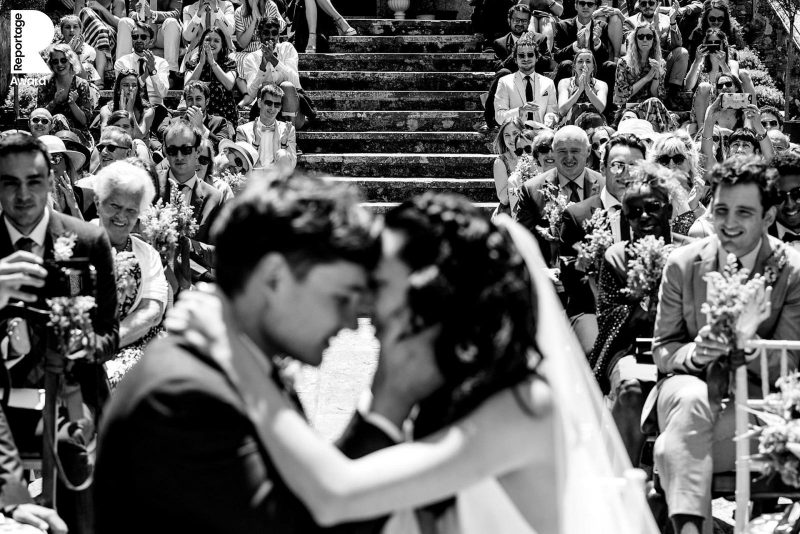
Alan Law: And how do you do that? Obviously with Reportage, we’re more about the documentary side, but our photographers still take portraits as well. So it’s still a very important subject. And how do you get more of them and their personality in the portraits? Do you have any advice for them?
Pedro Vilela: I talk to them before. We send a survey one month before the wedding and for me, the pre-wedding meeting is very important. I try to do a meeting with the couple on the week before the wedding.
Alan Law: Oh, okay.
Pedro Vilela: To go throughout the timeline of the day. To understand a little bit about what’s going to happen and having the survey and other meetings that we had before in my mind and my notes that I take of them at the first impressions that I have, I go from there. And I think this kind of tools are really important for me to understand the people that I’m taking pictures. Understand a little bit of them and why they are getting married. Why are they are getting married in that place and that venue? I do lots of destination weddings here in Portugal and why people are coming to Portugal to get married. I want to understand everything about why they are getting married. And I start from there.
Alan Law: Well that’s cool. That’s great advice. Pedro, by the way, are you maybe fiddling with something on your desk or something? I can hear like a little clipping sound, are you fiddling with a piece of paper or something?
Pedro Vilela: Sorry. It’s my pen.
Alan Law: That’s okay. I can hear it on the audio.
Pedro Vilela: So sorry. I talk a lot with my hands. I always with something in my hand. I stop now.
Alan Law: Sorry. It’s just that I want people to listen to you and I just don’t want them to be turned off with that noise. So, that’s cool. Cool. Right. So I’ll cut that bit out anyway.
Pedro Vilela: Okay. I know. It’s perfect. I love this kind of moment in the middle of the podcast and they think-
Alan Law: Okay. I might keep it in. We’ll see.
Pedro Vilela: You can leave.
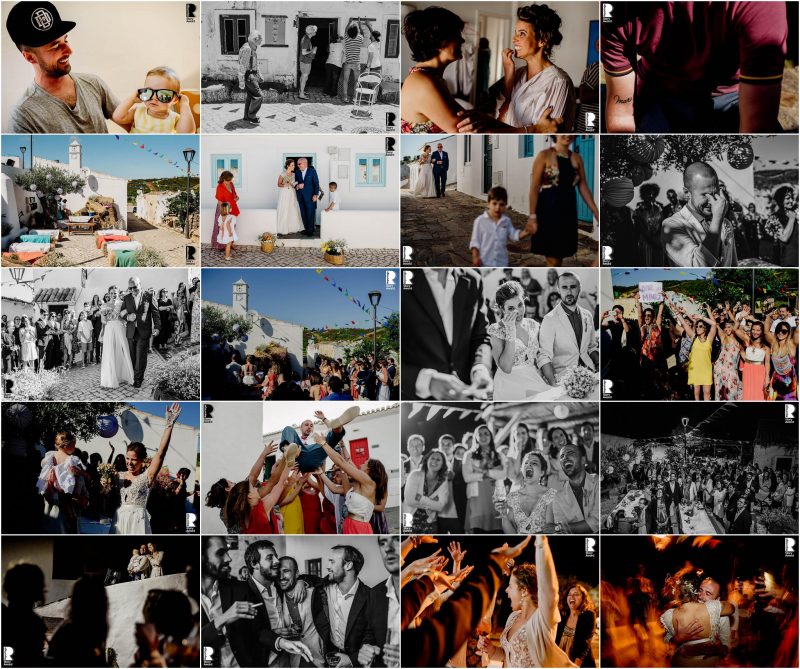
Alan Law: Okay. I’m going to change tack slightly now. You mentioned earlier how you loved movies. Are there any movies that make you cry?
Pedro Vilela: Cry? Oh.
Alan Law: Yeah.
Pedro Vilela: I need to think about that. Cry? Oh, my God, that’s tough.
Alan Law: Oh man, I cry at lots of things like-
Pedro Vilela: Yeah, tell me one.
Alan Law: Well Jerry McGuire. I always cry at Jerry McGuire.
Pedro Vilela: Oh, Jerry McGuire. Really.
Alan Law: Yeah, I know. I find that really emotional.
Pedro Vilela: Why?
Alan Law: Oh, when he comes and talks to her at the end and just his life journey and how he realizes he’s made kind of mistakes and had the wrong… Honestly, I just find it really emotional.
Pedro Vilela: Yeah. I love that part that he says “Show me the money!”
Alan Law: Yeah. It is a good film. But, yeah, do you have any that you cry on?
Pedro Vilela: I’m not remember a movie that I cry. Sorry. Maybe Coco. You know the…you saw that movie?
Alan Law: Day of the Dead. Yeah. It’s Day of the Dead, isn’t it? In Mexico?
Pedro Vilela: Exactly. I saw that movie with my daughters and I felt very emotional in the end.
Alan Law: Yes, I did as well and my daughter was emotional. It’s beautiful.
Pedro Vilela: Yeah, it’s very beautiful movie. I think I cried at that movie.
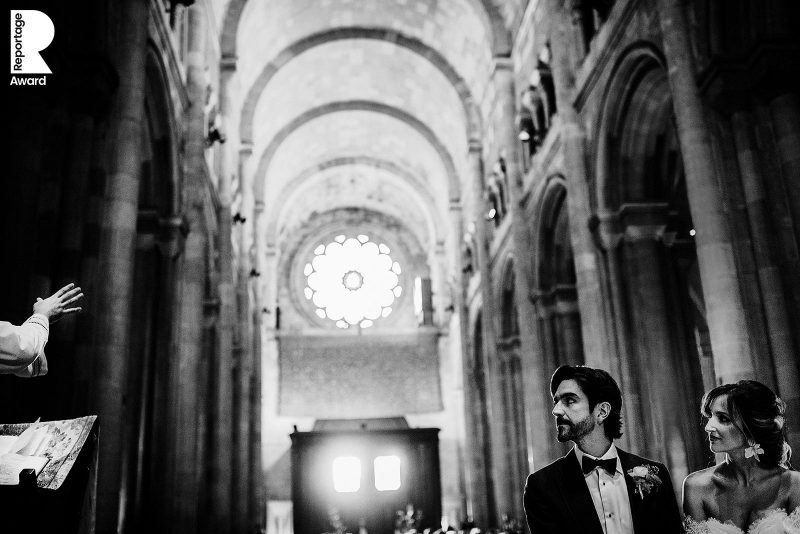
Alan Law: Okay, we’ll say you did. So your girls, they’re twins, I believe, is that right?
Pedro Vilela: Twins. Six years old.
Alan Law: Wow, twins. What was it like finding out that you were going to have twins?
Pedro Vilela: I’m always telling this story. When we found out, I was in the doctor’s room with my wife and when he said, “You know that promotion when you pay one and you take two?” He said that to me. I remember I sit down. I just said to my wife, “We need to buy a bigger car.” That was my reaction to that.
Alan Law: Oh man. I can’t imagine. I can’t imagine. So when they were both born, how did…
Pedro Vilela: It was chaos. I remember coming from a wedding 3 a.m. or 4 a.m. in the morning, tired, very tired from the wedding, and I was thinking, “Oh my God, I’m going to sleep now.” And when I arrive to our house, it was chaos. Because at the time, we had my wife’s mother helping us at the time when they were born. And it was chaos here. Everybody was doing something with one of the girls. And as you can imagine, I didn’t sleep that night. So my life the first months, I don’t know, the first year was understanding how to balance personal life and work and everything.
Alan Law: Sure.
Pedro Vilela: Yeah, and you know that, because you have two, one daughter and one son?
Alan Law: Yes, that’s right. Yeah. But not twins, I can’t imagine what that was like.
Pedro Vilela: Are they the same age almost?
Alan Law: Yes, very similar. That’s true. And they’re both at school now. Yours will be at school as well, is that right?
Pedro Vilela: Yeah, yeah, yeah. First class. First degree. First class.
Alan Law: Oh, okay. How have you found that? I miss them, but it’s weird having so much more time, as well. It’s a strange thing.
Pedro Vilela: Yeah. Yeah. And that’s why I was saying in the beginning, me and Helena, we are working together to have quality time with them. And for me, this is the most important thing. And I took lots of time to find the balance between everything in our life.
Alan Law: Sure. That balance is so important. Balance is.
Pedro Vilela: Yes. Yes, it is.
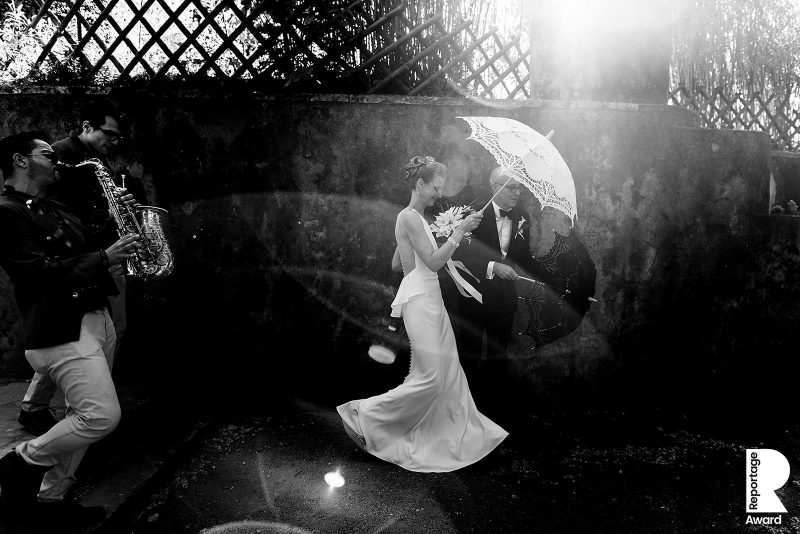
Alan Law: You were joint third in our top 30 last year, which is amazing. And you’ve also judged for us as well. Do you have any specific tips or bits of advice for people entering the Reportage Awards?
Pedro Vilela: I don’t think too much about that. I don’t know. The thing is, I think it’s really important to understand what we are doing on that day. I don’t feel so much that we are telling the story, their life story, because it’s a small chapter in their life. So we are there to document the day, of course, while things are happening. But if we can listen to the couple and try to listen to the people that are there on that day, we can find small stories in that day.
Pedro Vilela: And that’s the things that I love to see on Reportage pictures. Pictures that can show small moments, small details, small stories inside the big story, because there is always a bigger story than the wedding itself. There’s always the grandmother. The friend that arranged the meeting between the couple. There are lots of things to find in the wedding day that can be interesting or more interesting than the wedding itself. Because I think every wedding photographer, what they should do, is documenting the day of the key moments or the moments will happen are the key moments. But the in between moments can be more interesting to catch and to follow.
Pedro Vilela: And for that, I think we need to be focused on the day and try to see things around us and try to anticipate what’s going to happen. And I think this is the most important thing. Trying to read what’s happening in front of us and trying to anticipate what can happen in a certain moment. It makes sense? No?
Alan Law: Yeah, totally. That’s really good advice. And you mentioned how, just then, we’re just shooting their wedding, not their life, but actually one of my favorite pieces of your work, although you could call it more like a body of work, is what you did for Monica and Pedro, I think, over four years.
Pedro Vilela: Oh, yes, yes.
Alan Law: You did, was it you shot there, was it their engagement, their wedding, then a maternity shoot and family shoot. And even photographed the birth of their second child, I think.
Pedro Vilela: Yes.
Alan Law: That’s amazing. Yeah, tell us about that. Would you like to do more of those? How did that happen? It’s brilliant.
Pedro Vilela: I want to more about that. I think what happened there it was, we didn’t have plan of the things that we wanted to do. It all started with the engagement session and then the wedding. And after one year or two years, they had their first child and I did a maternity session. And then a few months, or one year or two years later, I did a family session with them. And on that family session, I asked them if it was possible to do the birth Reportage, you know. And I had some luck there, because they are nurses on the service.
Alan Law: Oh, cool. Yeah.
Pedro Vilela: They are on the hospital, so it was more easy for us to have the permission to do those pictures. And I never had a plan to do a thing like this. I think it was always a moment that they wanted to be documented. And in the end, when I had everything together, I felt that I had a story of a small part of their lives, but a strong part of their family story.
Alan Law: Yeah. I think it’s amazing. Honestly, it’s amazing and people should check it out. I’ll put a link to that blog post in the post (it’s over here). Yeah, really check it out. It’s brilliant. You should do more of those. I know it must be very hard to do though, actually?
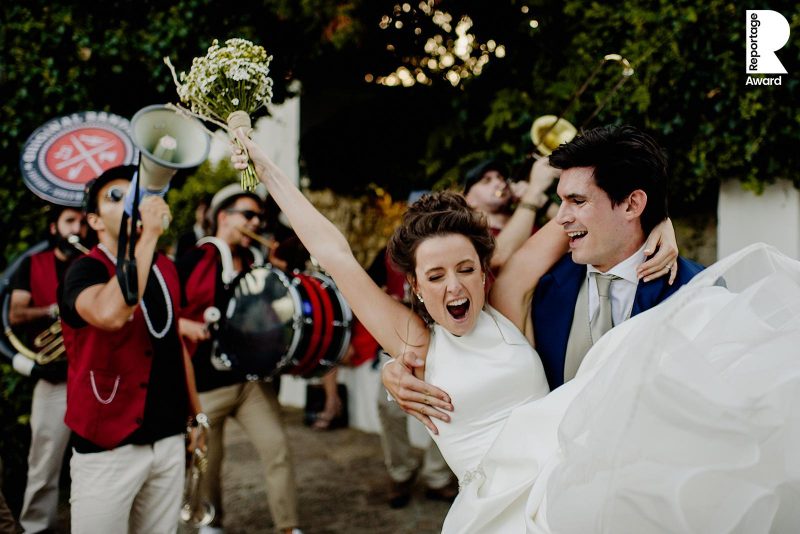
Pedro Vilela: Yes, it is. And actually the birth was really, really hard to do it, because I arrive very early on that day. I had a wedding on the day before, so I was very tired. But I arrive on the hospital early that day, and that birth like it was, it wasn’t supposed to be like that.
Alan Law: Oh no, really.
Pedro Vilela: Yeah. So we had some luck and what I like the most there is relating that to my personal story, because if you are talking about if there was a movie I cry at any movie, I cry on that moment.
Alan Law: Oh, yeah.
Pedro Vilela: Taking pictures of the birth, because I was thinking about my daughters that I unfortunately, I didn’t saw their birth, because they are twins, it’s a whole different operation. So I wasn’t allowed to be with my wife inside the room.
Alan Law: Oh, right. Okay.
Pedro Vilela: And so on that moment when I was taking pictures of this specific birth, I was thinking also in my role as a father and on that moment I cry a lot.
Alan Law: Oh, really. I bet. It’s very special, very special that you captured that. It’s amazing.
Pedro Vilela: Well it was very strong for me.
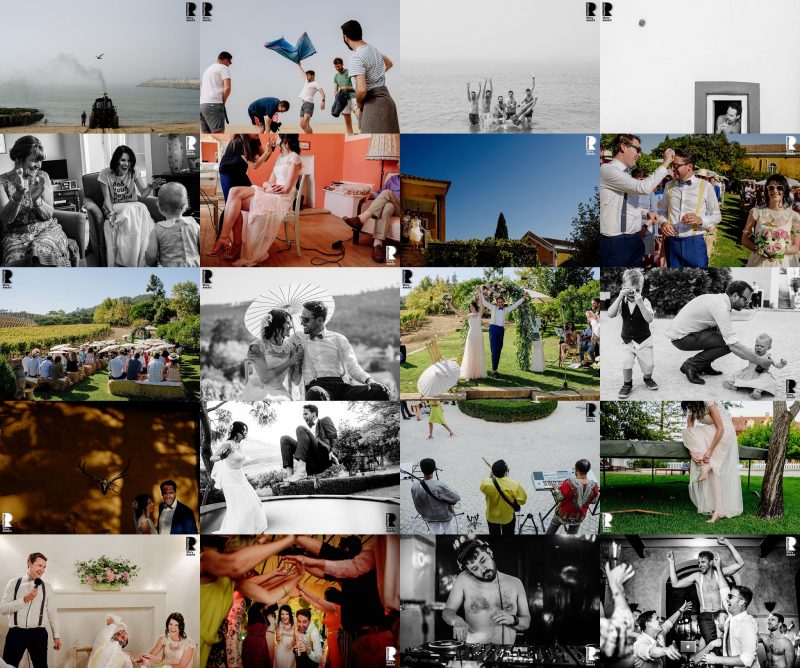
Alan Law: Just to go on to a slightly different tack, but what would be your top tips for people just starting out in our industry?
Pedro Vilela: You always doing the difficult questions.
Alan Law: I can’t make it easy. Can’t make it easy.
Pedro Vilela: We can work this together. What do you think, in your opinion?
Alan Law: Yeah, I’ve not been asked that, actually. It is a difficult question, isn’t it?
Pedro Vilela: I think, how many years are you taking pictures?
Alan Law: I think about seven years now.
Pedro Vilela: Seven years. You don’t feel that we have some kind of responsibility when we are talking about this kinds of things, because you do workshops, I do workshops, we already talking wedding conferences. I think everything that we say and we write, I think, will always be very important or not to the people that read that or listen to that or go to our workshops.
Alan Law: Yeah, that’s true.
Pedro Vilela: I think about this with lots of responsibility. I don’t want to say nothing that can lead someone to do the wrong thing. I think we always need to be true to ourselves. I think this is the most important thing. And not following so much what other people do, or what other people write, or the trends that are in our industry. I think we need to be first, true to ourselves. Trusting our gut and go from there.
Alan Law: That’s so true.
Pedro Vilela: Yeah. And I think this, for me, it’s the most important thing. I think it’s important for us and it’s important you’re doing this podcast and it’s important for us all professionals, or wedding photographers, having the This is Reportage community. But we need first, to understand who we are as a person, to understand who we are as a photographer. This is the most important thing.
Alan Law: I think that’s brilliant advice. I couldn’t agree more. We need to be ourselves and shoot things how we want to do it. Otherwise, if we follow everyone else, all our work will look like everyone else and we might as well be doing a 9 to 5 job and we have to love what we’re doing. Otherwise, yeah, you might as well be working for someone else.
Pedro Vilela: Yeah. It’s true. So true.
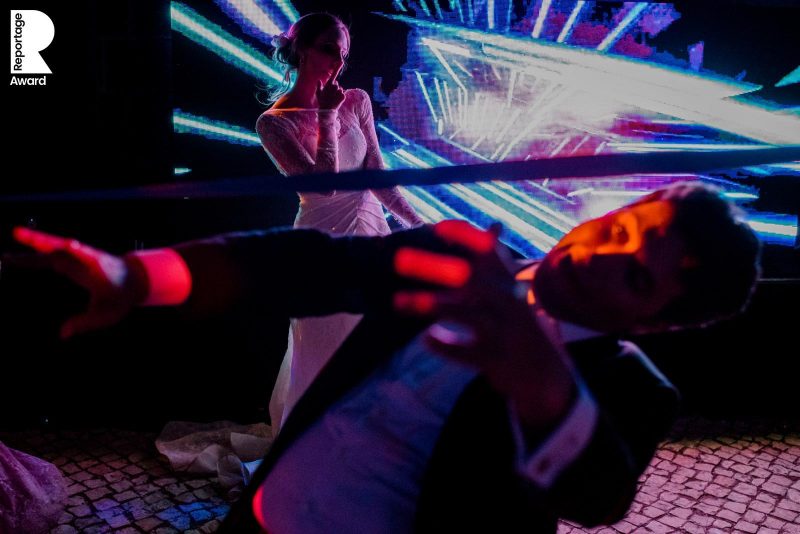
Alan Law: That was great advice, Pedro. It’s great. You mentioned though about how you’ve spoken, you do workshops and you recently spoke at the Fearless Conference, this year I think. How was that for you?
Pedro Vilela: Yes.
Alan Law: Were you nervous?
Pedro Vilela: A lot. A lot. In the end it was a really amazing experience. I was really nervous, really nervous. Especially because I had my presentation in Portuguese and I had to do it in English.
Alan Law: I can’t imagine doing a conference in a different language. That’s amazing.
Pedro Vilela: Yeah. Yeah. But what I can think about that it was more positive, that it was a really positive thing for me, because I challenged my fears. First, to speak in front of an audience, a big audience, with some of my favorite photographers there.
Alan Law: Scary.
Pedro Vilela: And speak in English. So in the end, I was really, really happy with the result of everything. And I prepared myself very well. I think I was, I don’t know, maybe three or four months preparing for this.
Alan Law: That’s cool.
Pedro Vilela: Yeah.
Alan Law: And your daughters were there as well, weren’t they?
Pedro Vilela: Yeah. And they went on stage, so it was a really special moment for me.
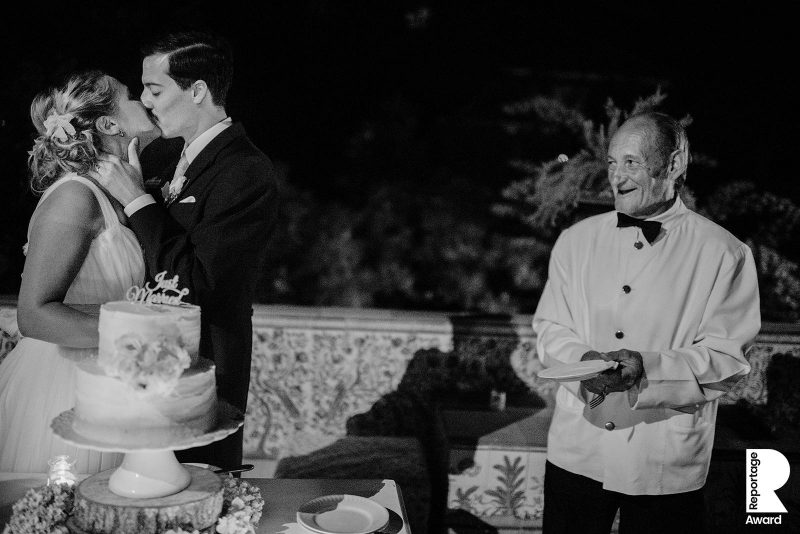
Alan Law: That’s very cool, man. That’s very cool. Other than photography, what are you passionate about? What do you love?
Pedro Vilela: My daughters, my wife.
Alan Law: Yeah, that’s a good answer. Say that you had 24 hours totally to yourself to do whatever you wanted to do, what would you do?
Pedro Vilela: At this moment in my life, I like the simple things. Gather friends. Nice talks. Talk about the simple things about life. Drinking a nice wine. You know?
Alan Law: Yeah.
Pedro Vilela: A nice chat with friends and family. I think that is the most important thing for me, or the thing that I like to do the most. In the past, I had a boat. I sailed and that was a big passion for me, but I had other priorities in my life, especially with my personal life with my family. But it’s something that I miss. But now at this moment, I think the thing that enjoys me a lot is gathering friends and family and having a nice chat. Talking about simple things. That’s the thing that I like the most at this moment.
Alan Law: That’s cool. That’s cool. Has there been a specific turning point in your career? Something that happened, like a certain wedding or award or something that has had a major impact on your career?
Pedro Vilela: I know it’s a cliché, but being a father. Having my daughters, it was a turning point in my life, because I think I put everything in perspective. My past, my present and my future. And the path that I wanted to follow from that point always trying to be true to myself. I think that moment was very challenging for me.
Pedro Vilela: And the moment that I changed a lot the way that I saw wedding photography was Fer Juaristi workshop. Because, at the time, for me it was important to talk to Fer about that. To understand how an amazing photographer like he was, he is, has amazing work, doing amazing things and having a family. And I think he had two daughters or two sons, at the time, now he has three. And that moment, talking to him, the workshop for me was I realized the path that I wanted to follow. Always be true to my beliefs and my principles. And I think these two moments, being a father and having this workshop, it was a turning point for me. And to understand at that moment what’s the path that I want to follow.
Alan Law: That’s cool, man. And great. It’s cool I was there on one of those turning points, because I was at that workshop as well. It was brilliant and it was super meeting you that day. And that was a big deal for me, as well that day. And we met Ross Harvey, as well didn’t we that day?
Pedro Vilela: Yes. Yeah.
Alan Law: Yeah, and one of my other close…
Pedro Vilela: Andy Gaines, Rahul Khona, as well.
Alan Law: Oh, yes. So many. Yeah it’s mental, actually. That’s bizarre.
Pedro Vilela: It was a nice group.
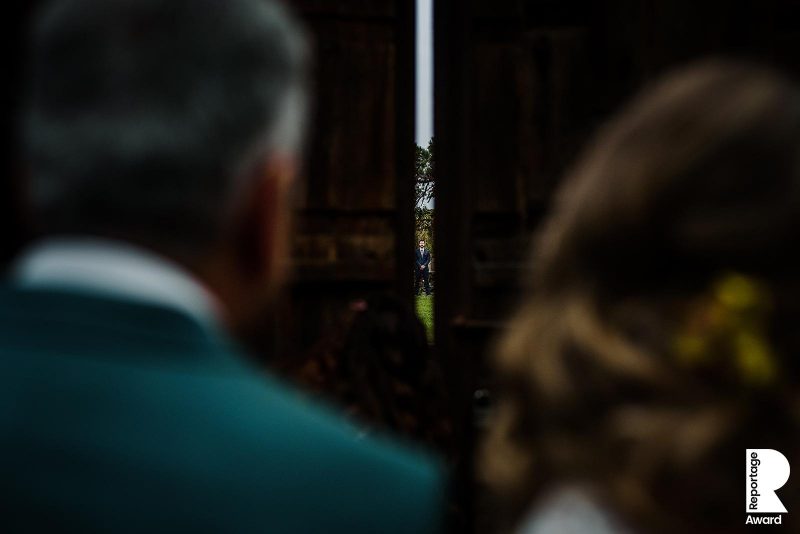
Alan Law: Yeah. It was really nice. Other than photographic skills, what skills or attributes do you think wedding photographers should have? What’s important? It’s not just about the photography skill is it?
Pedro Vilela: It’s not the photography skill. No, I think it’s more than that. I think many of the skills I think we realize with experience. It’s nice for us to understand a little bit psychology.
Alan Law: Yeah, I think that’s important. Yeah.
Pedro Vilela: Yeah, sure. And it’s also important for us to know to communicate, to talk to people.
Alan Law: Yeah. The people side is really important.
Pedro Vilela: Yeah. To understand them, because I think we are in the time that… I remember a time that I was more young than the couple and I think it was a nice thing for me at the time, but now my couples are always more young than me. So I feel that sometimes I can give them nice advices or some tips and it’s more than photography. It’s more about certain aspects about how we see life.
Alan Law: That’s cool.
Pedro Vilela: Yeah.
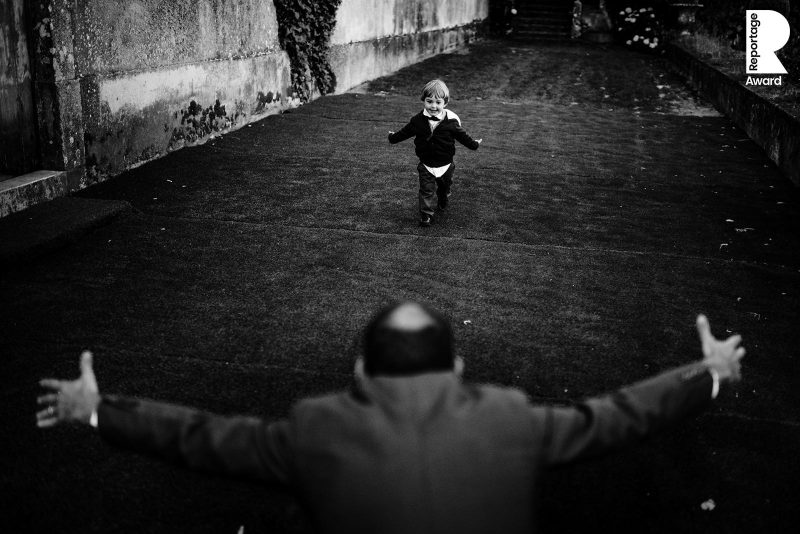
Alan Law: And do you think about the future in general? You mentioned it a bit earlier, but do you think about it? Whether you’ll still be shooting weddings in ten years time?
Pedro Vilela: No. I remember one of the talks that we had on the Fer Juaristi Workshop, and we talked about this. We talked about the ten years in front of us. This was in 2014. In five years past, and I don’t know. I know we are putting another grow up ten years. Of course, I think about the future and I really don’t know what’s going to be my life in the next ten years. But the only thing that I know now, is that we are together, me and my family. We are happy with the life that we have. And I feel the biggest value that I have at this moment is my motivation and my work. And as long as I feel motivated to do the work that I do, I think I’m still here to work. I don’t know. Really. Maybe I’m doing another thing. Maybe I’m working still in photography. I don’t know.
Alan Law: Well, I think that’s great. You sound so happy now. People don’t always have to have a plan for 10 years.
Pedro Vilela: I don’t have a plan, but of course, I don’t want to be scared about the future. We just need to follow each day and try to achieve our goals, daily goals, and do our tasks and be happy. I don’t know.
Alan Law: No, that’s a good answer. That’s great. What is there more to life than being happy anyway? Surely that’s the most important thing.
Pedro Vilela: Yeah. I try to be.
Alan Law: You always are. Whenever I’ve met you, you’re like the cheeriest person in the room. You’re great to be around. You really are.
Pedro Vilela: Oh, thank you so much.
Alan Law: Well it’s true. It is true. We’ve got time for just one last question, I think. A big question here. Do you eat the canapes?
Pedro Vilela: That’s the big question?
Alan Law: That’s the big question. Everyone wants to know.
Pedro Vilela: On the wedding?
Alan Law: Yeah, on the wedding.
Pedro Vilela: Of course I eat the canapes.
Alan Law: Yeah, you do.
Pedro Vilela: Of course. Especially if they are good.
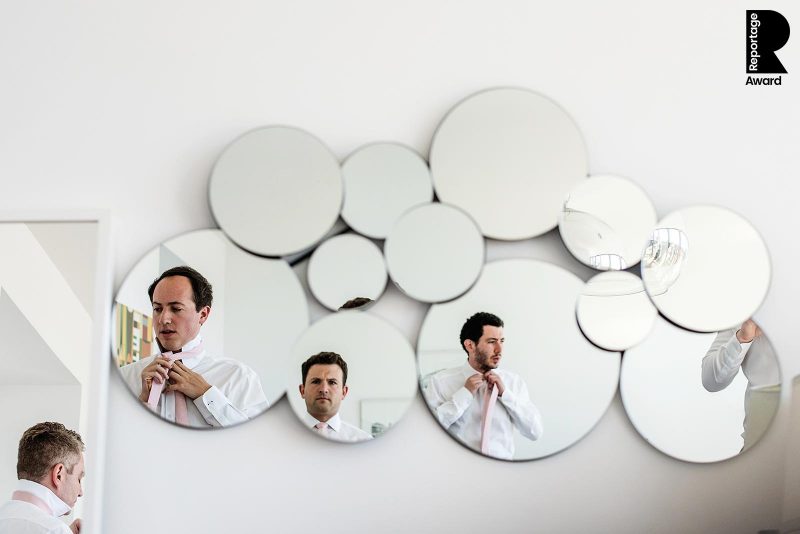
Alan Law: Yeah, yes. Not the bad ones, but the good ones. Oh, Pedro. Awesome. Thank you so much for that. That was absolutely brilliant. So lovely talking to you and you’ve given so much great advice there. That was brilliant.
Pedro Vilela: Yeah, I hope so. And you are doing so great things. I think I wrote this on our group on Facebook, that This is Reportage is really important for the wedding photography community. And what you are doing is changing the perception about wedding photography, because this community is very strong. And since you launched this, I’m finding so many amazing photographers, especially in the UK. It’s amazing how you guys are doing so great work in documentary style.
Alan Law: Well, that’s very kind of you. So lovely to say. And I didn’t pay you to say that.
Pedro Vilela: And I think This is Reportage has a really important role in our industry.
Alan Law: Thank you. That really means a lot. That really means a lot.
Pedro Vilela: And it’s amazing you’re doing this podcast. It’s not a surprise, because I think you are a really wonderful person and always with wonderful ideas.
Alan Law: Oh, Pedro. You’re being too nice. Stop it, you’re being too lovely. Too lovely. People will think I sent you a big check or something.
Pedro Vilela: No, it’s true, because I already wrote this somewhere, I don’t know, but I think I wrote in my timeline on Facebook, but I don’t know, but it’s true. It’s true.
Alan Law: Well, it’s very lovely of you. And honestly, it’s been an honor for me to be talking to you today. You really are one of my all time favorite wedding photographers. Whenever anyone asks me, I always mention you. And you’re such a lovely guy as well. So thank you so much for your time.
Pedro Vilela: Thank you, and I think I will see you in Doc Day, I think.
Alan Law: Oh, yes. Oh, yes, yes. Amazing. In February. Yes, looking forward to that.
Pedro Vilela: Yeah, yeah. Me too. Are you nervous for that? No?
Alan Law: Oh, yes. I get nervous. Yes. I’m going to follow your advice though and practice a lot. I’ve got months, so.
Pedro Vilela: But you are very experienced, I saw you in Nine Dots and it was amazing.
Alan Law: Too kind, right. You’re too kind. I’m going to say goodbye, because you’re too kind. Thank you so much, Pedro.
Pedro Vilela: Thank you. It was a pleasure.
***********************************************************
So many thanks again to Pedro Vilela for this interview! You can see lots more of his work over on his This is Reportage profile, and his website. The link to the ‘family story’ that Pedro talks about in the episode is also over here.
We really hope you enjoyed this episode of the Podcast; if you did, you can subscribe to the show over on iTunes, where you can also leave us a little review/rating if you’ve got the time – and inclination! – too; it would be massively appreciated!
Would you like to join us here at TiR? We’re all about putting moments fore and centre; showing the world the art, skill and importance of documentary wedding photography. Members can show an unlimited number of images/Stories on their profile, have 60 Reportage Award entries and 18 Story Award entries per year, get exclusive discounts/deals on wedding photography related products/services, invites to our meetups and parties (such as our Christmas Party in London, which is just a few days away) and much more…
